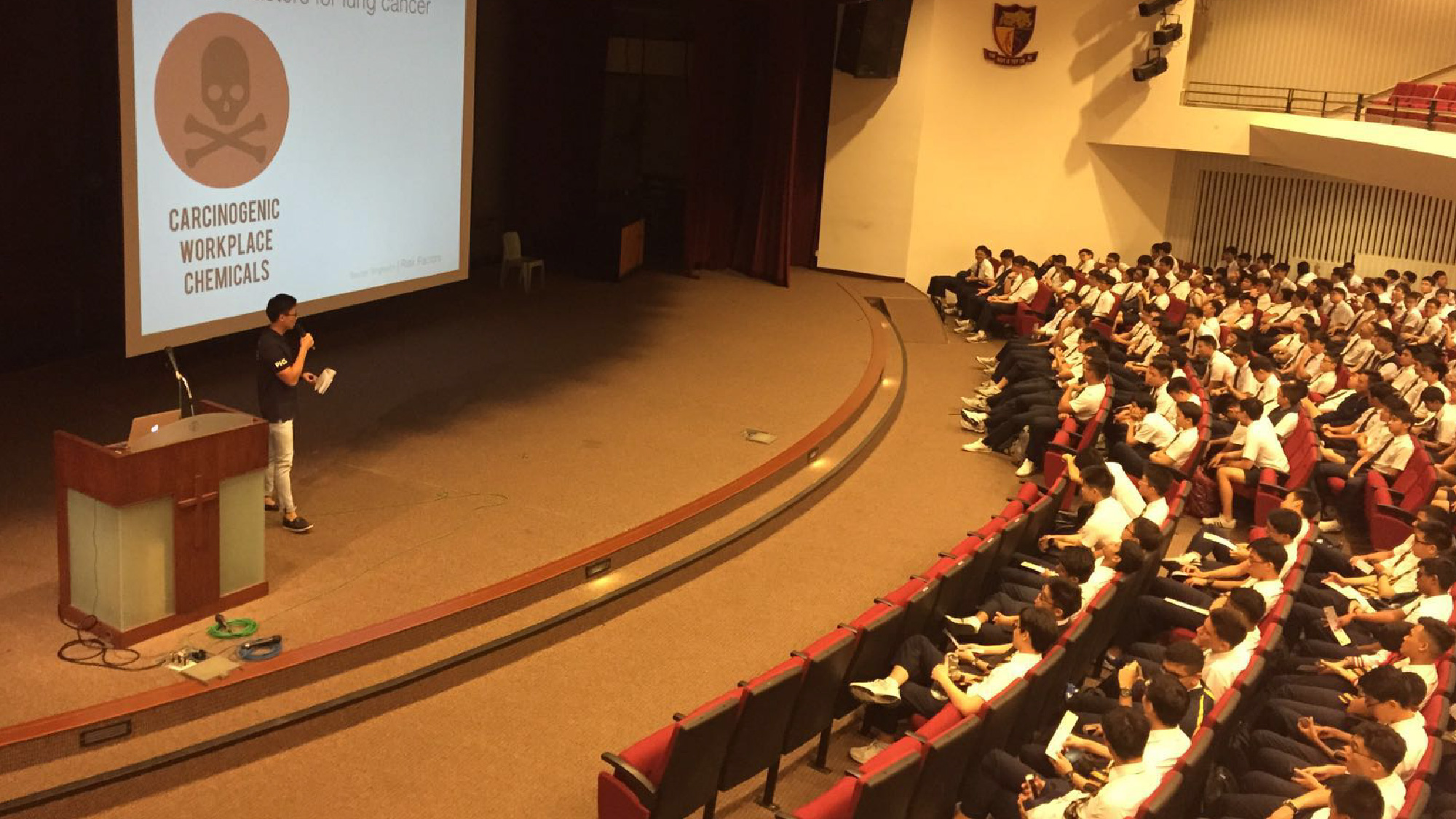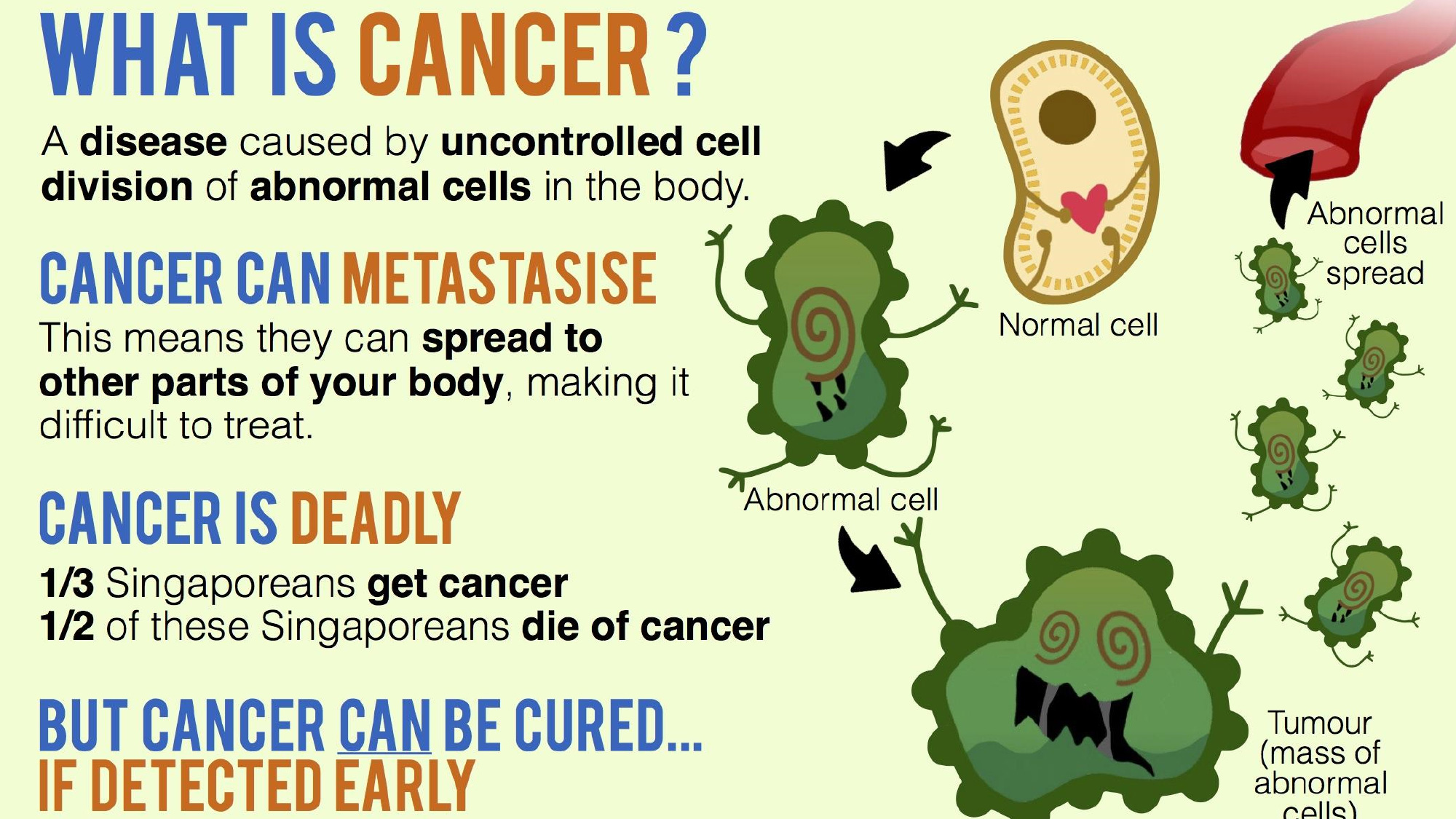Getting the Young to Teach Their Elders about Health
Russell Ang, MBBS Phase II &
David Yuen, MBBS Phase II
“Promoting Health, Spreading Awareness” – this is the motto of the Public Health Service (PHS), a preventive medicine initiative by NUS Yong Loo Lin School of Medicine students. PHS brought this motto a step further when it pioneered the Young Health Ambassadors Programme (YHAP) in 2015, as an extension of its initiatives into primary prevention. This was established in the light of shifts in the greater public health sphere towards increased community health screening and secondary prevention, giving rise to a prominent primary prevention gap that PHS sought to fill through health education.
The programme employs two main methods to achieve its aims – health talks and health projects. Both draw upon and tap on the influence and persuasive power which school children wield over their parents and other adults at home.
The programme cultivates and empowers youths to become Health Ambassadors who influence their families, schools and communities to adopt positive health behaviour. In particular, it encourages youths to influence their parents, as they comprise the middle-aged group that is at increased risk of several chronic diseases and cancers. While it may seem incongruous at first that PHS uses an indirect method to reach this target group, the approach is rooted in research findings that children have more influence over their parents’ health behaviour compared to health professionals.
The outreach to school children begins with PHS committee members giving assembly talks at various secondary schools and junior colleges. Our speakers present important health information at an understandable level, and in an interesting, captivating manner. We started in 2015 with Anglo-Chinese School (Independent) and expanded to Chua Chu Kang Secondary School and Crescent Girls’ School in 2016. Using images, videos, analogies and anecdotes, the talks emphasise the importance of the health topics and encourage the children to carry key health messages to their loved ones at home.
For instance, in our first talk on diet and exercise, we explained metabolic syndrome, diabetes, gout and hypertension in easy-to-understand ways, and emphasised that these are chronic diseases that people have to live with for life. We then explained the practical lifestyle changes people could make to prevent the onset of such diseases, such as contextualising Health Promotion Board’s My Healthy Plate to Singapore’s hawker fare. For example, we explained how removing the skin of chicken meat meant a reduction of as much as half of the amount of fat present in chicken rice.
In another talk on cancer, we shared about some of the most common cancers in Singapore, as well as cancers that can be screened for – namely colorectal, breast, cervical and lung – emphasising the importance of early detection through screening, and lifestyle changes that people could make to reduce their risk of getting those cancers.
At every of these school talks, we underlined how important it was that the children shared what they learnt with their families and friends.
While chronic diseases and cancers are not typical topics of conversation for the young, we urged the students to spread the health message to those they love.
We received good feedback at all the schools we visited. Pre and post-talk surveys that we ran indicated students understood what had been shared with them.
As second-year medical students who had just learnt about metabolic diseases and cancer, we found it a challenging yet enjoyable experience to share our knowledge at an appropriate level with younger people. Those of us who went back to our alma maters to present these talks found the experience enriching and nostalgic. The fact that we are also young people allowed us to better communicate with the students we spoke to, as peers rather than “healthcare professionals”.

Here is the view of Dominic Ting, who spoke at his alma mater, Anglo-Chinese School (International) (ACSI) on Diet and Exercise in 2015:
“The idea of going back to ACSI to speak was never far-removed since I graduated in 2013. Having been greatly blessed by my education in ACSI, it was a privilege to return to the school to share with my juniors what I have learnt through my experience in PHS, and about the values we uphold. My committee and I believe strongly in public education, and empowering young people to make sound health decisions for themselves. We hope that through our talks, the students have gained greater insight into cancer prevention, and the different modalities of screening.”
The second arm of YHAP involves mentoring a group of students on a health topic over a few months, culminating in a public exhibition by these students at PHS’ annual health screening. In 2016, we worked with 25 Year 1 students from Hwa Chong Junior College on the topic of cancer. The students were grouped into four teams, each in charge of researching a particular cancer. Over three months, with the guidance of the National University Cancer Institute, Singapore (NCIS) and PHS, they crafted exhibition posters and games that were put up on screening day, providing useful health education about cancer to the public. Well-rehearsed and equipped with knowledge of their topics, the students put up a very praiseworthy exhibition.
These are some of the feedback given by the Hwa Chong Junior College students regarding their mentorship experience:
WHAT DID YOU TAKE AWAY FROM THE PROGRAMME?
– “Getting the facts right is one thing, but the real challenge lies in convincing people to listen to you and consider regular screening for cancer.”
– “Learnt a lot more about cancer, and how to prevent it. Also the importance of living a healthy lifestyle and going for regular screenings such that the cancer is detected early with a greater survival rate.”
– “Information about cancer and prevention methods which can be shared with relatives and friends. Memories from sharing the information through the booths with strangers and debunking their misunderstandings of cancer.”
Moving forward into 2017, we plan to expand the YHAP efforts, to reach out to even more schools. We also intend to further our partnership with schools to craft a programme with greater sustainability and impact for their community. In the light of expansion in health education efforts, we also hope to recruit other volunteers from the healthcare community, to conduct health talks.
If you would like to find out more about PHS or the YHAP, visit our website at www.publichealthservice.org. If you are interested to help, or have any queries or suggestions, email us at medsocphs@gmail.com.

